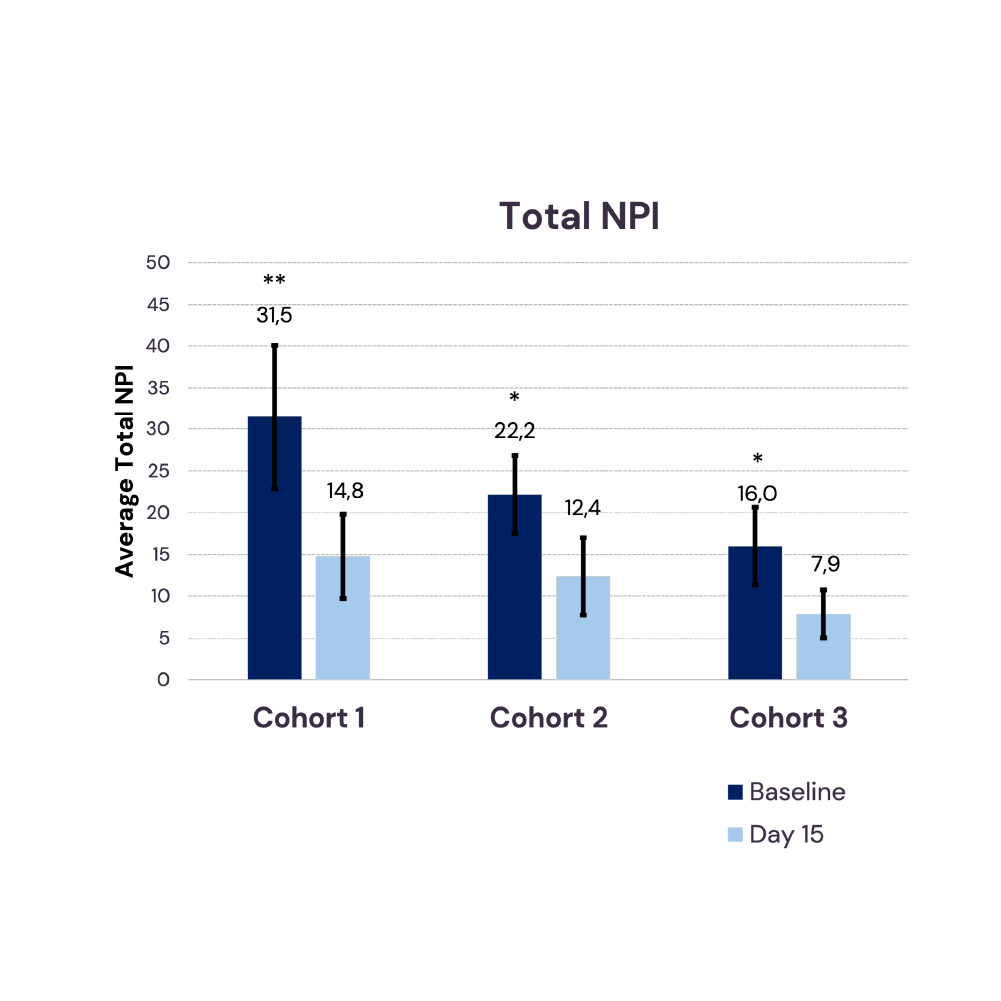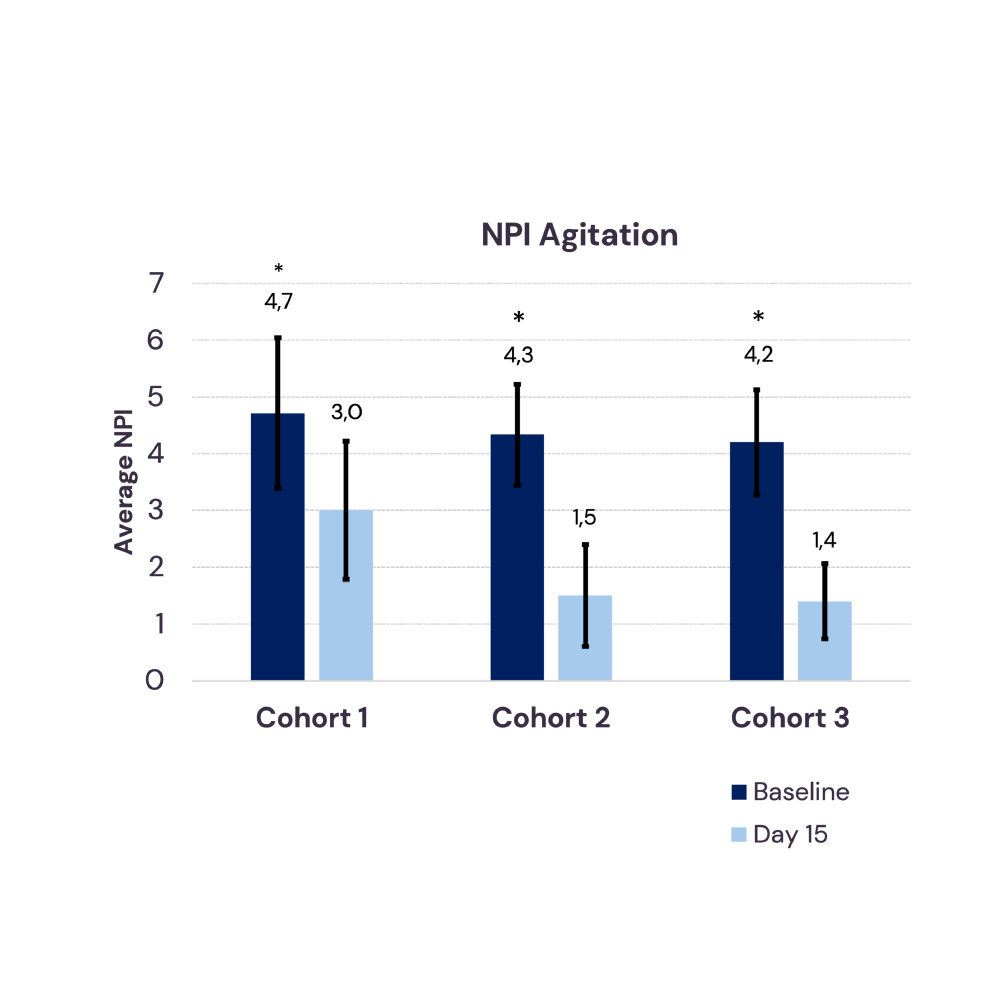Phase I Clinical Trial
Study Design:
The study involved participants with mild to moderate Alzheimer’s disease to evaluate the safety and tolerability of IGC-AD1.
Results: IGC-AD1 was found to be safe and tolerable at three different dosage levels.
– Improvements were observed in Neuropsychiatric Symptoms (NPS) and Caregiver Distress.
Objectives

Primary
Evaluate safety and tolerability of IGC-AD1 measured by patient-reported and observed Adverse Events.

Secondary
Measure any changes to Neuropsychiatric Symptoms (NPS) as measured by the Neuropsychiatric Inventory (NPI-12)

Demographics
Female
69.2%
Male
30.8%
Age
80.46 ± 5.71 y.o.
Weight
147.66 ± 31.62 lb.
Height
5.28 ± 0.46 ft.
BMI
21.58 ±
1.02
Phase I Clinical Trial Results
- IGC-AD1 is safe and tolerable at three different dosage levels.
- Caregiver distress, and Neuropsychiatric Symptoms (NPS), including agitation, anxiety, and depression improved.
Phase I Clinical Study Results
-
Results on NPS
-
Results on NPS: Neuropsychiatric Symptoms Measured by NPI Scores
Patients taking IGC-AD1 intervention showed an overall improvement in NPS. Caregiver distress improved as well.

-
Results on Agitation
-
Results on Agitation
At all three dosages, agitation improved both clinically and statistically (p <0.05).
Results on NPS: Neuropsychiatric Symptoms Measured by NPI Scores
Patients taking IGC-AD1 intervention showed an overall improvement in NPS. Caregiver distress improved as well.

Results on Agitation
At all three dosages, agitation improved both clinically and statistically (p <0.05).


